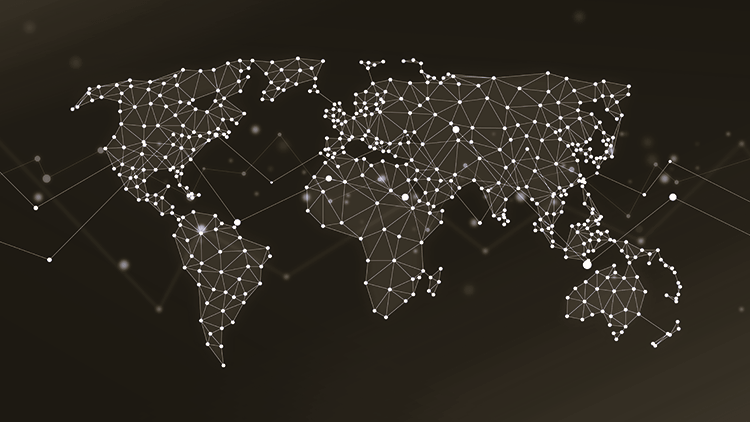The Future of Epidemiology in a Post-Pandemic World: Crucial for Global Health
Dr. Alamou Sanoussi
1/19/20214 min read


The Evolving Role of Epidemiologists
The COVID-19 pandemic has significantly transformed the role of epidemiologists, emphasizing their crucial contributions to global health. Traditionally focused on identifying and controlling the spread of infectious diseases, epidemiologists have now found their responsibilities expanding in unprecedented ways. During the pandemic, their expertise became indispensable in understanding the transmission dynamics, identifying risk factors, and developing mitigation strategies to contain the virus. This pivotal role underscored the importance of epidemiologists in public health crises.
One of the remarkable changes in the field has been the necessity for interdisciplinary collaboration. Epidemiologists have increasingly worked alongside data scientists, public health officials, and policymakers to address the multifaceted challenges posed by the pandemic. This collaboration has been vital in the rapid collection, analysis, and interpretation of complex data sets, which in turn has informed evidence-based public health decisions and policies. The integration of advanced data analytics into epidemiology has enabled more accurate predictions and real-time tracking of disease outbreaks, making it a critical asset in managing public health emergencies.
Moreover, the pandemic has highlighted the need for epidemiologists to acquire new skills and knowledge areas. Proficiency in advanced data analytics, including machine learning and artificial intelligence, has become essential for handling the vast amounts of data generated during health crises. Additionally, a deep understanding of global health dynamics is crucial as infectious diseases do not respect borders. Epidemiologists must now be adept at considering socio-economic, cultural, and environmental factors that influence disease spread on a global scale. These expanded competencies are vital for developing comprehensive strategies that can effectively address future public health challenges.
In conclusion, the evolving role of epidemiologists in a post-pandemic world is marked by greater interdisciplinary collaboration and an expanded skill set. Their contributions are vital for understanding and mitigating the spread of infectious diseases, making them indispensable in safeguarding global health.
Data Analysis and Surveillance Systems: Cornerstones of Future Epidemic Response
The COVID-19 pandemic has highlighted the critical role of data analysis and surveillance systems in the field of epidemiology. Robust, real-time data collection and analysis have proven essential for the prompt detection and response to emerging infectious diseases. The integration of advanced technologies, such as artificial intelligence (AI) and machine learning (ML), has significantly enhanced these systems, enabling more accurate and timely insights into disease patterns and trends.
AI and ML algorithms can process vast amounts of health data from diverse sources, including electronic health records, social media, and mobile health applications. These technologies are capable of identifying patterns that may indicate an emerging outbreak, allowing for early intervention and mitigation. For instance, AI-driven predictive models can forecast the spread of infectious diseases, helping public health officials allocate resources more effectively and implement targeted containment measures.
Moreover, the development of sophisticated data visualizations and dashboards has improved the accessibility and interpretability of complex epidemiological data. These tools enable healthcare professionals and policymakers to make informed decisions based on real-time information, ultimately enhancing the overall response to health crises. By leveraging big data analytics, epidemiologists can uncover hidden correlations and trends, leading to more effective prevention and control strategies.
However, the increased reliance on data analysis and surveillance systems also brings challenges related to data privacy and security. Ensuring the confidentiality of sensitive health information while maintaining its availability for critical public health decision-making is paramount. Implementing robust cybersecurity measures and establishing clear data governance frameworks are essential to address these concerns. Additionally, fostering collaboration among international health organizations, governments, and private sector entities can facilitate the sharing of vital information while respecting privacy regulations.
In conclusion, the future of epidemiology hinges on the continual advancement and integration of data analysis and surveillance systems. By embracing cutting-edge technologies and addressing privacy and security challenges, the global health community can enhance its ability to detect, respond to, and prevent future epidemics, ultimately safeguarding public health on a global scale.
Global Connectivity and the Spread of Infectious Diseases
In today's highly interconnected world, the rapid movement of people and goods across borders has significantly increased the risk of infectious disease transmission. The unprecedented rates of international travel and trade have created new pathways for pathogens to spread, making it more challenging for epidemiologists to monitor and control outbreaks effectively. As individuals travel from one part of the world to another, they can inadvertently carry diseases with them, leading to rapid and widespread transmission.
The rise of global connectivity necessitates a coordinated international response to health threats. Standardized health protocols at borders, such as health screenings, vaccination requirements, and quarantine measures, are essential strategies to mitigate the risks associated with global travel. Additionally, international cooperation among nations and global health organizations plays a crucial role in developing and implementing these protocols. Organizations like the World Health Organization (WHO) and the Centers for Disease Control and Prevention (CDC) provide vital resources and guidance, helping to establish a unified approach to managing and preventing the spread of infectious diseases.
Beyond governmental and organizational efforts, public health education and communication are fundamental in fostering a globally aware and prepared population. Educating the public about the risks associated with infectious diseases and promoting preventive measures can significantly reduce the incidence of outbreaks. Effective communication strategies, including social media campaigns, public service announcements, and community outreach programs, are key to ensuring that individuals are informed and engaged in efforts to protect global health.
In the face of increasing global interconnectedness, the challenges for epidemiologists are greater than ever. However, through international cooperation, standardized health protocols, and robust public health education, it is possible to mitigate the risks and enhance our capacity to respond to infectious disease threats. By fostering a collaborative and informed global community, we can better safeguard public health and prevent future pandemics.
